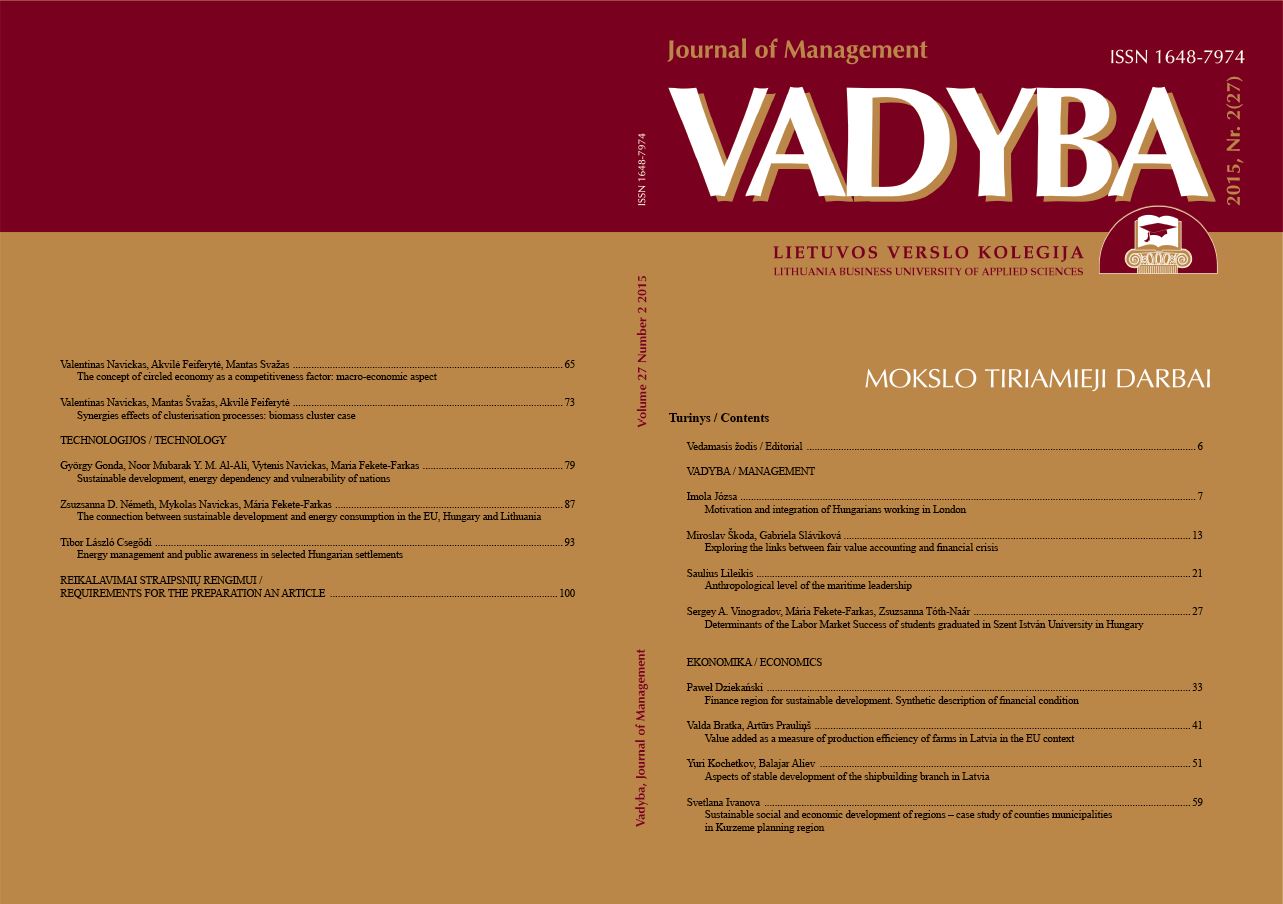SUSTAINABLE DEVELOPMENT, ENERGY DEPENDENCY AND VULNERABILITY OF NATIONS
SUSTAINABLE DEVELOPMENT, ENERGY DEPENDENCY AND VULNERABILITY OF NATIONS
Author(s): György Gonda, Noor Mubarak Y. M. Al-Ali, Vytenis Navickas, Mária Fekete-FarkasSubject(s): Social Sciences, Economy, Theology and Religion
Published by: Lietuvos verslo kolegija
Keywords: energy dependency; renewable energy; Hungary; Lithuania; Qatar.
Summary/Abstract: Since the UN conference in Rio de Janeiro organized in 1992, the sustainable development is the central question of the global, regional and national strategies. The requirement of that is defined in the main conference document „Agenda 21’. In 2012 the Rio+20 conference stated that there is a substantial progress in integration of the economic, social and environmental pillars of SD into strategic planning into many national development plans, transition into practice still remain a challenge. Although generally accepted definition does not exist for „sustainable development”, but there is consensus that it is a highly complex and complicated multidimensional process, which is aiming to reach and keep the balance between society, economy and nature for the well-being of future generations as well. There are different approaches and theories about the sustainable goals and the strategies leading to a better world, although there not even a precise, generally accepted definition has been set up for „sustainable development”. In mind of the authors, the sustainable development is a progress with aim to lesser the long term vulnerability of economic, social and ecological systems. There is a general consensus, that energy is the essential question in the sustainable development, since this business area plays a key role in every countries’ economics, industrial production level, even significantly influencing social and private spendings – besides effecting the environment. Energy dependency of economy of countries increasing, and that is no matter they are exporters or importers. For example European Union the most of the EU countries are vulnerable to energy price shocks or energy supply disruptions. As the world hydrocarbon supply is geographically concentrated in some regions the supplier countries will have key role in global economy and politics, but they economy is vulnerable as well. In the energy resources rich countries the economic performance has been influenced by oil and gas or coal revenue volatility (Mehrara, 2007).Our study connects to this line, showing and analysing national development strategies of countries with different conditions. We will introduce three countries’ (Qatar, Hungary and Lithuania) pursuit for sustainable development, who are standing on the two opposite sides of the fossil business, however, the motivation and the future goals have become the same for all of them.
Journal: VADYBA
- Issue Year: 27/2015
- Issue No: 2
- Page Range: 79-86
- Page Count: 8
- Language: English

